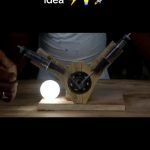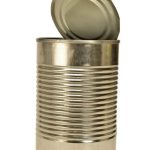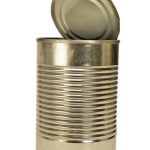Waking up when you can’t hear a traditional alarm clock can be a challenge. This guide explores the world of alarm clocks designed specifically for deaf and hard-of-hearing individuals, covering everything from vibrating bed shakers to sunrise simulators. By the end, you’ll be equipped to choose the perfect alarm clock to fit your needs and lifestyle.
Wake-Up Strategies Without Sound
Let’s explore the different types of alarm clocks designed for those who can’t hear traditional alarms:
Vibrotactile Alarms (The Shakers)
These alarms use a powerful vibrating device, often called a bed shaker, placed under your pillow or mattress. The intensity is often adjustable, ranging from a gentle nudge to a vigorous shake. Studies suggest effectiveness can depend on sleep depth and individual sensitivity to vibrations.
Visual Alarms (The Flashers and Dawns)
Visual alarms use flashing lights or simulated sunrise. Rhythmic pulses of light may suffice for light sleepers or those with mild hearing loss. Sunrise alarm clocks mimic dawn, offering a gentler awakening. Some evidence suggests this type can positively impact sleep cycles and mood upon waking.
Combination Alarms (The Best of Both Worlds)
These offer the flexibility of both vibrotactile and visual stimuli, allowing customization to fit specific needs. Some even incorporate aromatherapy, though research on its effectiveness is ongoing.
Essential Features
Choosing the right alarm clock involves considering key features:
Adjustable Vibration Intensity
Tailor the wake-up experience to your sensitivity, from a gentle buzz to a more vigorous shake.
Customizable Light Brightness
Adjust brightness from a soft glow to a bright flash, crucial for those with light sensitivity.
Multiple Alarms
Set multiple alarms for a customized wake-up routine, helpful for those needing a gradual process.
Powerful Bed Shaker
For heavy sleepers, a bed shaker with adjustable strength can be invaluable.
Top Alarm Clock Reviews
(This section requires current product information. Online retailers and consumer reports are excellent resources.)
| Product Name | Type | Key Features | Approximate Price (USD) | Pros | Cons |
|---|---|---|---|---|---|
| [Product 1 Name] | Type | Specific features like vibration strength, light intensity, etc. | $XX | Detailed pros, e.g., ease of use, battery life, portability | Detailed cons, e.g., durability issues, limited features, brightness |
| [Product 2 Name] | Type | Specific features | $XX | Detailed pros | Detailed cons |
| [Product 3 Name] | Type | Specific features | $XX | Detailed pros | Detailed cons |
Remember to research and compare models before buying, as prices and features can change.
Optimizing Your Alarm
Placement
Experiment with bed shaker positions for maximum effectiveness.
Battery Backup
Regularly check the battery backup to ensure functionality during power outages.
Testing
Test alarm settings regularly for continued effectiveness.
Troubleshooting
For weak vibrations, reposition the bed shaker or check batteries. Manufacturer websites often have helpful tips, and many offer customer support.
Alternatives to Traditional Clocks
Wake-up apps, smart home integrations, and service dogs trained for alerting offer additional options.
Frequently Asked Questions (FAQ)
Q: Can a regular alarm clock at a very loud setting work?
A: While potentially suitable for mild hearing loss, a dedicated deaf alarm clock is generally more reliable and consistent.
Conclusion
Finding the right alarm clock significantly improves sleep and mornings. Explore the options, consider your needs, and discover your perfect wake-up call. With advancements in technology, the future of assistive devices like alarm clocks is likely to offer increasingly innovative and personalized solutions. Ongoing research may also shed more light on the best wake-up strategies for individuals with hearing loss. Don’t hesitate to consult with audiologists or other healthcare professionals for personalized advice.
- How to Make a Free Energy Source at Home - February 8, 2026
- How Can I Make Free Electricity By Generating Home Power - February 7, 2026
- How To Produce Power At Home Through Alternative Energy Systems - February 6, 2026
















